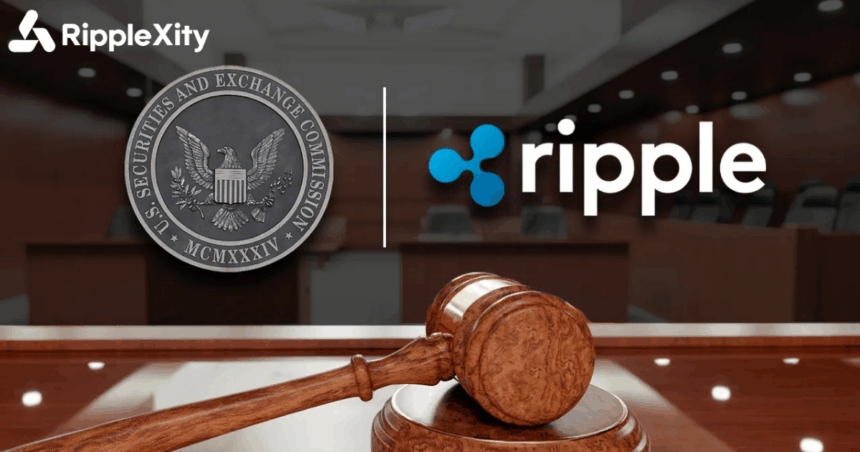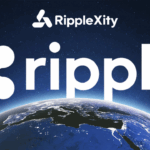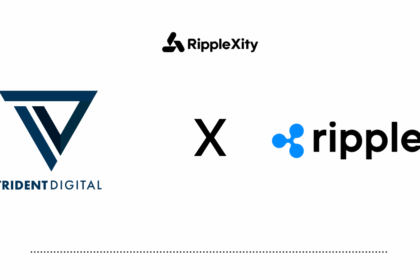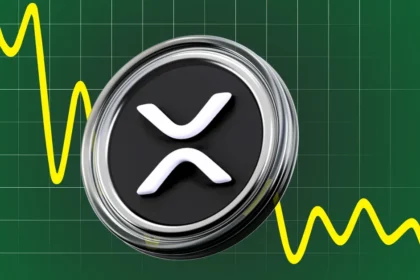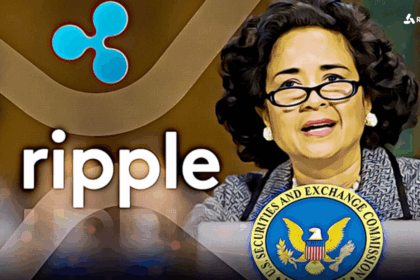After more than four years of courtroom tension and global crypto attention, the Ripple vs SEC legal saga has reached its defining conclusion. The U.S. Securities and Exchange Commission has officially withdrawn its case against Ripple, signaling the end of one of the most impactful legal battles in cryptocurrency history.
A Historic Resolution with Long-Term Implications
Ripple’s final settlement requires the company to pay $50 million of the original $125 million fine, with the remaining $75 million potentially refundable upon court approval. The case, which began in December 2020, cost XRP holders an estimated $15 billion in market losses and saw Ripple spend over $150 million defending its position.
The court confirmed a crucial precedent: XRP is not a security under current law when traded on public exchanges. This sets a significant benchmark not only for Ripple but for the entire digital asset space.
Following the announcement, XRP’s price surged over 10%, reigniting investor confidence and reinforcing Ripple’s position as a compliant leader in the evolving regulatory landscape.
Key Settlement Details & Compliance Roadmap
The SEC’s agreement outlines a 30-day deadline for Ripple to remit the $50 million penalty. In exchange for the waived portion, Ripple must implement disclosure protocols for institutional XRP sales over the next five years and regularly report to regulators.
By 2029, assuming full compliance, Ripple will no longer be subject to SEC oversight regarding these specific XRP sales—providing a clear, enforceable roadmap that contrasts the ambiguity of past crypto settlements.
The agreement also makes a critical distinction: programmatic XRP sales on secondary markets do not constitute securities offerings. Institutional sales, however, remain under disclosure requirements during the monitoring period.
Judge Torres Rejects Initial Penalty Reduction Request
In a twist, Judge Analisa Torres denied a joint motion from Ripple and the SEC to reduce Ripple’s penalty via an informal “settlement approval.” She cited procedural errors, clarifying that such modifications must meet the “exceptional circumstances” standard under Rule 60.
While the rejection temporarily upholds the original $125 million penalty, Ripple’s legal team is expected to refile correctly. Ripple Chief Legal Officer Stuart Alderoty emphasized that the setback was procedural, not substantive, stating, “nothing in today’s order changes Ripple’s wins.”
Appeals Withdrawn on Both Sides
In March 2025, the SEC officially dropped its appeal of the July 2023 ruling, which had concluded that XRP, when traded on public exchanges, is not a security. Ripple, in response, withdrew its cross-appeal, sealing the path toward a full resolution.
Ripple’s CEO Brad Garlinghouse called the move a “long-overdue surrender” and a victory for the broader crypto industry. The final settlement includes:
- A $50M payment from Ripple to the SEC
- Joint request to dissolve the 2024 injunction
- Preservation of Judge Torres’ original summary judgment
The SEC clarified that this action was a matter of discretion and not a statement on the merits of the original claims.
July 2023: The Ruling That Changed Crypto Law
Judge Torres’ landmark decision in July 2023 changed the game. Her ruling distinguished between institutional sales, which were deemed securities, and programmatic sales, which were not. She emphasized that secondary market buyers had no reasonable expectation of profit tied to Ripple’s efforts—thus failing the Howey Test.
This decision has since been hailed as a legal foundation for how digital tokens may be regulated moving forward. Legal experts noted that the ruling diverged from previous SEC actions against Kik and Telegram, providing a framework for compliant token distribution models.
XRP’s Rally and Industry-Wide Impact
Following the final settlement news, XRP jumped 13%, reaching $2.56, temporarily surpassing Tether to become the third-largest cryptocurrency by market cap.
The broader crypto market reacted positively:
- Bitcoin rose to $84,096
- Ethereum climbed to $2,031
Ripple’s legal clarity now positions it for rapid expansion, and many believe it lays the groundwork for:
- Potential XRP-based ETFs
- Inclusion in U.S. government crypto reserves
- Expanded institutional payment services
A Shift in SEC Strategy
Ripple’s case is part of a wider trend: the SEC has recently withdrawn actions against firms like Coinbase, Kraken, Robinhood, and Gemini. While Commissioner Caroline Crenshaw voiced dissent, stating the settlement “creates more questions than answers,” most industry voices see the decision as a strategic reset.
The Final Word: Regulatory Clarity at Last
This historic case concludes not with a collapse, but with clarity.
Ripple has emerged from the battle with legal validation, renewed momentum, and a roadmap to scale further. For the crypto industry, the ruling affirms that digital tokens, when sold transparently on secondary markets, do not inherently constitute securities.
And for XRP holders, it’s the beginning of a new chapter—one where innovation can thrive without regulatory fog.
📌 RippleXity will continue providing high-integrity updates as Ripple scales its post-lawsuit roadmap and sets new standards for on-chain finance.




